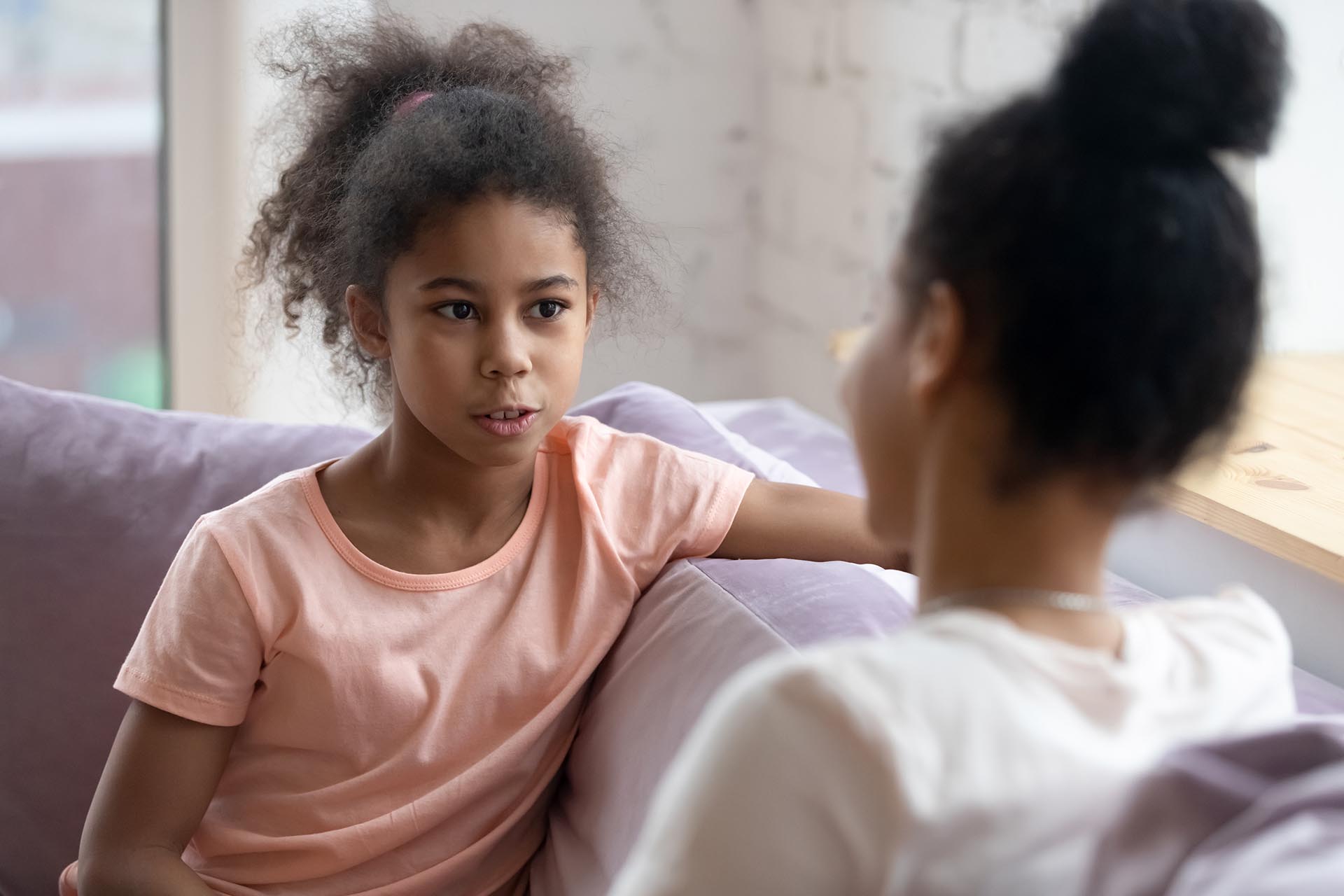Mood swings: tips for supporting your young person
Remember puberty? It’s an exciting but challenging time for young people as they navigate intense, often rapidly changing emotions.
We often say that young people can’t control their mood swings, but they can control how they manage their behaviour. As a parent or caregiver, you can help your young person recognise negative emotions when they surface and support them in practising habits that help them reset and recalibrate.
What causes mood swings?
Various factors can bring on mood swings in your young person’s life. Rising levels of hormones and different rates of brain cell development in regions of the brain throughout puberty can contribute to unstable emotions.
In addition to the biological factors associated with puberty, mood fluctuation can be exacerbated by school pressure or social stressors. The natural need to question and define their identity outside the family unit as they grow older can also be made more difficult by the pressures of social media.
Mood swings are a normal part of growing older. However, if your young person is experiencing severe mood swings or symptoms of depression or anxiety, it’s important you consult a health professional.
Many people don’t think children or pre-teens experience depression or anxiety, and the signs can often look different in children. During the COVID lockdowns, in particular, a survey of parents and carers of Australian children aged 4 to 17 found around 20% in the clinical range for anxiety symptoms and 20% depressive symptoms, respectively.If your young person is exhibiting the following signs, it could point to an underlying mental health condition such as depression, anxiety, an eating disorder or bipolar—all of which commonly emerge during adolescence:
- negative moods last up to weeks or months
- moods swing from extreme highs (mania) to extreme lows (depression).
- avoiding social situations, including those with family
- loss of interest in favourite pastimes
- loss of weight or changes in appetite
- self-harm or dangerous behaviour
Cover the basics
Identifying how these factors might impact their mood and perspective can support young people in developing more autonomy amongst all those confusing physical, social and mental changes they’re facing. While the following actions are unlikely to prevent mood swings entirely, they will help to reduce unnecessary stress.
- help them establish a healthy sleep routine. Guidelines show children aged 5-17 years need between nine and 11 hours of sleep
- ensure they are exercising regularly
- support them in eating a balanced diet
- encourage your child to remain connected and engaged with friends. Peer engagement has been linked to decreasing symptoms of anxiety and depression
Ensuring their responsibilities at school and home are manageable means any incoming mood fluctuations will also be more manageable. Ask your child what sorts of things they feel they have on their plate and how they plan their time to get things done. Talk about prioritising and what that means. And don’t forget that lists and getting things done shouldn’t be the focus, as they can make people feel overwhelmed and stressed. Talk about balance—how can we categorise items into ‘things that have to be done’ and ‘things that I can put off’ and even ‘things I don’t want to do (but have to)’ and ‘things I do want to do (and am looking forward to)’?
Stay connected
It might be hard at times—especially when you feel like you’re also riding the emotional rollercoaster—but try to stay connected with your young person by checking in and letting them know their feelings are valid.
Encourage your young person to try to recognise signs that a bad mood is coming while letting them know it’s okay if they don’t know what caused it. They will start to know their own body and mind and may recognise a pattern to their moods. However, the hormone surges do happen randomly, so there may also be no pattern or warning signals.
Help them to unpack and try and communicate their strong emotions. This is probably best left until after they’re feeling better (otherwise, they might bite your head off). Negative emotions can be slightly different for everyone; they might feel sad, irritable, angry, super tired or unmotivated. Understanding their more common moods can help your young person to create healthy coping mechanisms that suit them.
Support them to reset!
Once your young person feels a lousy mood approaching, it is important they know they have a choice of what to do next. Pairing an uncomfortable feeling with a healthy coping strategy will help them manage their behaviour even as they can’t control their emotions.
Make sure they have the space to recalibrate and encourage them to choose an activity that will help them to do so, such as:
- listening to music
- drawing
- taking a shower
- walking the dog
- patting the cat
- journaling
- reading or listening to an audiobook
Encouraging them to develop habits or activities that help them ‘reset’ from a bad mood will help them cope better with the ups and downs of puberty and all the unexpected things life will throw at them in the future.
Further resources
- The New Puberty, Amanda Dunn
- check out our fact sheet series ‘Let’s talk’ to support parents and caregivers with their conversations at home
- THAT Sex Ed Podcast episodes, ‘Talking puberty with your teen or child’ (listen here)










